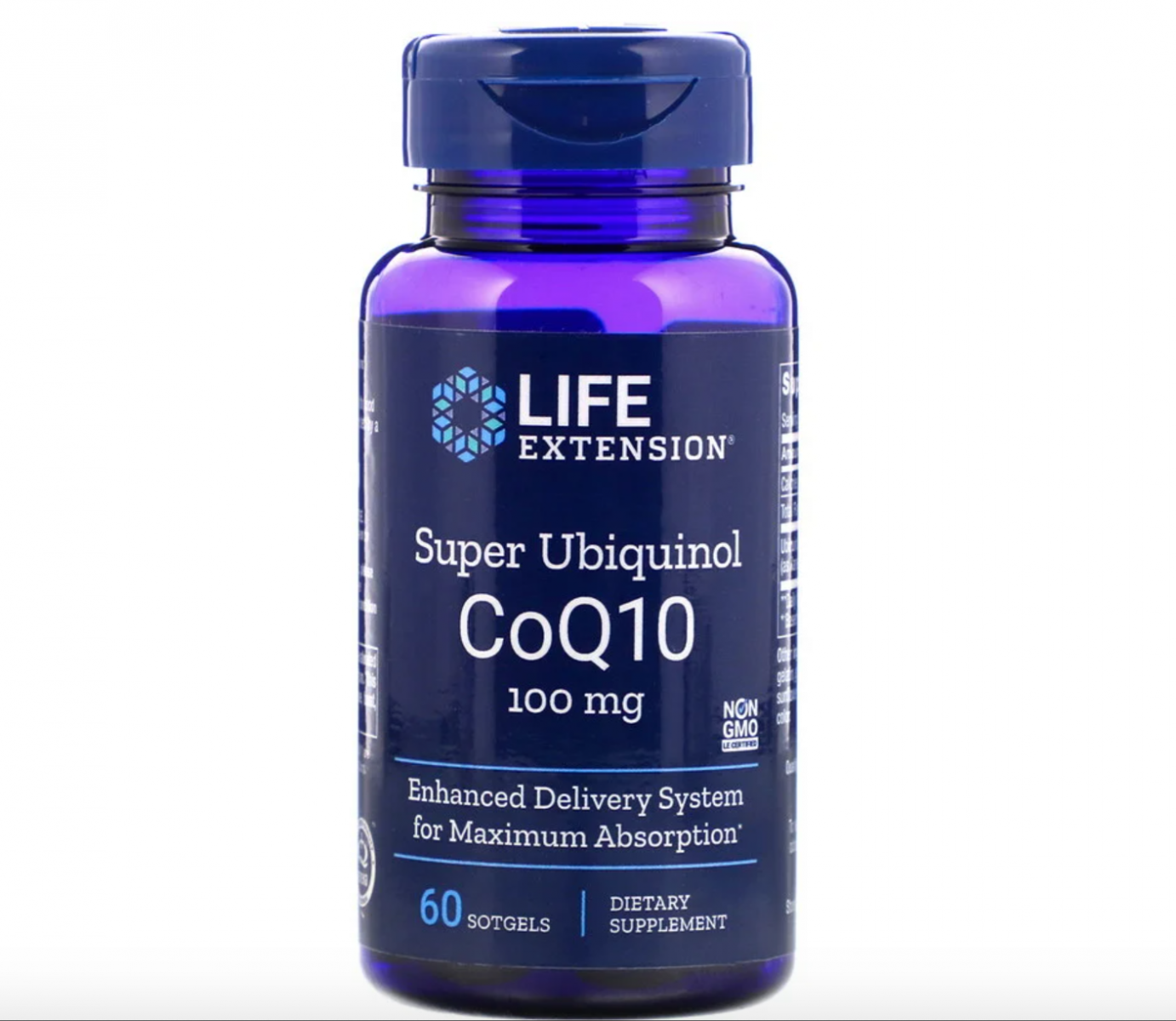COVID-19 Rehab: Supplements That Could Help With Chronic Fatigue Syndrome/ Myalgic Encephalomyelitis Manifesting In ‘Recovered’ COVID-19 Patients
Source: COVID Rehab Aug 04, 2020 4 years, 8 months, 2 weeks, 6 days, 3 hours, 38 minutes ago
COVID-19 Rehab: With official figures showing that almost 18.5 million individuals infected with the COVID-19 disease and tens of millions more asymptomatic individuals and infected people who have yet to be tested, the medical and healthcare sectors worldwide is expected to be overwhelmed not only to deal with individuals getting infected with the SARS-CoV-2 coronavirus and the short term symptoms or the severe cases, but more so with the so called ‘recovered’ and asymptomatic individuals as more reports are emerging that a variety of chronic medical and health conditions are arising and manifesting in such individuals.

One of the most common conditions that most COVID-19 ‘recovered’ and asymptomatic individuals are experiencing is
fatigue or more correctly
Myalgic Encephalomylitis or
Chronic Fatigue Syndrome and in this case it is also referred to as
Post Viral Fatigue Syndrome (PVFS). Studies are now showing that up to 70 percent of COVID-19 recovered and asymptomatic individuals are manifesting this condition.
https://www.thailandmedical.news/news/post-covid-fatigue-irish-study-claims-44-70-percent-of-recovered-covid-19-patients-will-suffer-from-severe-fatigue-irrespective-of-disease-severity
The main symptom of post-viral fatigue is a significant lack of energy. One might also feel exhausted, even if one’ve been getting plenty of sleep and resting. Other symptoms that can accompany post-viral fatigue include:
concentration or memory problems, sore throat, headache, swollen lymph nodes and neuromuscular problems such as unexplained muscle or joint pain.
However it should be noted that at the moment that researchers are highlighting that that the fatigue conditions experienced by post COVID-19 patients might be different from the typical Myalgic Encephalomylitis or Chronic Fatigue Syndrome in terms or the cellular pathways that are triggering it.
https://www.medrxiv.org/content/10.1101/2020.07.29.20164293v1
Even then, a key factor that seems to be associated with it is still inflammation and cellular metabolism.
Here, we at Thailand Medical News have assembled a list of supplements that could help with the Myalgic Encephalomylitis or Chronic Fatigue Syndrome especially in terms of Post Viral Fatigue Syndrome (PVFS). Though they are lots of supporting studies in terms of how these supplements can help, we have to point out that as of date there are no specific published studies that actually demonstrate that they work in the case of the COVID-19 ‘recovered’ patients and asymptomatic individuals although we have received positive feedback from various doctors and patients around the world. It should be noted that the COVID-19 disease only made its debut in January 2020 ad medical experts are only just discovering more facets about it day by day.
Please Help To Donate To Sustain This Site And Other Research We Are Propel
ling. Thank You. https://www.thailandmedical.news/p/sponsorship
We advise anyone attempting to take any of these supplements to treat themselves to first consult a licensed medical doctor to ensure they might not have any existing underlying medical conditions that can be aggravated by these supplements or if there are any drug interactions with any existing drugs that one might be already taking. Also do your own due diligence as some medical doctors are against any kind of supplements as they prefer prescribing toxic pharmaceuticals of which they are making hefty commissions from them and also in some cases, some doctor are totally clueless about medical and scientific studies about these supplements and will simply brush it off.
It should be noted that chronic fatigue is a complex illness, and no one treatment plan works for everyone. Multi-faceted approaches are typically needed to help manage the syndrome's impactful symptoms, including incapacitating fatigue and pain.
1. Omega-3s and Omega-6s Essential Fatty Acids
Past research have shown that individuals with chronic fatigue syndrome have imbalanced levels of essential fatty acids (omega-3s and omega-6s), which may contribute to symptoms such as fatigue and body aches.
https://pubmed.ncbi.nlm.nih.gov/30471769/
The human body needs to get essential fatty acids through nutrition because it cannot manufacture them on its own.
A few small studies have found that supplementing with a combination of essential fatty acids found in evening primrose oil and fish oil can lead to an improvement in symptoms.
https://www.sciencedirect.com/science/article/pii/S0753332218342987?via%3Dihub and
https://pubmed.ncbi.nlm.nih.gov/16380690/ and
https://onlinelibrary.wiley.com/doi/abs/10.1111/j.1600-0404.1999.tb00667.x and
https://www.researchgate.net/publication/8588398_Eicosapentaenoic_acid-rich_essential_fatty_acid_supplementation_in_chronic_fatigue_syndrome_associated_with_symptom_remission_and_structural_brain_changes
More studies are needed before essential fatty acids can be definitively recommended to ease symptoms of chronic fatigue syndrome, diets rich in essential fatty acids especially omega-3s have been shown to have many health benefits, including reducing inflammation and improving cardiovascular health.
https://ods.od.nih.gov/factsheets/Omega3FattyAcids-Consumer/ and
https://www.uscjournal.com/articles/omega-3-fatty-acids-science
Excellent dietary sources of omega-3s include fatty fish, like salmon, herring, and sardines, flaxseed, walnuts, chia, and certain oils.
2. Vitamin B12 and Folic Acid
Scientists have been exploring whether vitamin B12 injection or other means of supplementation, along with folic acid, can relieve CFS symptoms.
Interestingly, there is a biochemical theory as to how this may be of benefit: People with CFS show reduced methylation which plays a role in gene expression as well as regulation of many of the body's systems, including detoxification, cardiovascular and the neurologic system.
https://journals.plos.org/plosone/article?id=10.1371/journal.pone.0124648
Hence it is believed that Vitamin B12 and folic acid both promote healthy methylation pathways.
A research of B12 injections in addition to oral folic acid supplementation found that some subjects with CFS responded well, while others had only a mild response. A better response was associated with more frequent injections, lack of use of opioids, and a certain genetic phenotype.
https://kyushu-u.pure.elsevier.com/en/publications/overview-of-medical-treatment-and-management-of-chronic-fatigue-s and
https://www.tandfonline.com/doi/abs/10.1300/J092v08n02_04
There was another study that looked at using B12 nasal drops as an alternative to injections in subjects with CFS. This study also found good response in two-thirds of the participants. The researchers demonstrated that those who had a better response had a higher blood level of B12 and were more physically active (as measured with an activity monitor).
https://www.frontiersin.org/articles/10.3389/fphar.2019.01102/full
3. Coenzyme Q10
Q10 or Coenzyme Q10 (CoQ10) is a compound found naturally in the mitochondria, the energy-producing center of our cells. CoQ10 is involved in the production of ATP, the main energy source of body cells.
As an antioxidant, CoQ10 has been explored as a potential treatment for chronic fatigue syndrome.
https://www.sciencedirect.com/science/article/abs/pii/S1043661819308011?via%3Dihub
New research suggests that individuals with chronic fatigue syndrome may be deficient in CoQ10, and the lower its level in their system, the more debilitating the symptoms.
https://pubmed.ncbi.nlm.nih.gov/20010505/
While additional studies are needed to determine the efficacy of CoQ10s in treating chronic fatigue, some research suggests CoQ10 may be more effective when combined with nicotinamide adenine dinucleotide (NADH).
https://www.liebertpub.com/doi/10.1089/ars.2014.6181
There are many other studies that also support the usage of Coenzyme Q10 to treat Chronic Fatigue Syndrome and even Post-Viral Fatigue Syndrome.
https://onlinelibrary.wiley.com/doi/pdf/10.1111/jhn.12435 and
https://www.ncbi.nlm.nih.gov/pmc/articles/PMC3934515/
However be warned when buying Q10 supplements as the main chemical component Ubiquinone is present in two isomer form and one cannot be properly absorbed by the human gut and also besides ubiquinone, there is also its reduced form called ubiquinol . Many unethical Asian brands of supplements uses the cheaper ineffective versions. For a reputable brand, stick to Life Extension from the United States.
 4. Nicotinamide Adenine Dinucleotide (NADH)
4. Nicotinamide Adenine Dinucleotide (NADH)
Nicotinamide Adenine Dinucleotide or NADH is a naturally occurring molecule formed from vitamin B3 (niacin) that plays an essential role in cellular energy production. Research suggests it may be beneficial for people with chronic fatigue syndrome.
https://bmccomplementmedtherapies.biomedcentral.com/articles/10.1186/1472-6882-11-87 and
https://pubmed.ncbi.nlm.nih.gov/20447621/
A review of studies in 2017 published in the Journal of Human Nutrition and Dietetics found that NADH may help to reduce fatigue and improve energy in patients with chronic fatigue syndrome/myalgic encephalomyelitis.
https://onlinelibrary.wiley.com/doi/full/10.1111/jhn.12435
Another research suggests NADH may be more effective when combined with other alternative treatments, including coenzyme Q10 (CoQ10).
https://www.liebertpub.com/doi/10.1089/ars.2014.6181
5. Dehydroepiandrosterone (DHEA)
Dehydroepiandrosterone or DHEA is a hormone secreted by the adrenal glands and in smaller amounts by the ovaries and testes. DHEA can be converted in the body to other steroid hormones, such as estrogen and testosterone. It is also involved in memory, mood, and sleep. Levels of DHEA in the body peak when a person is in their mid-20s and then slowly decline with age.
Past studies have shown that DHEA levels are abnormal in people with chronic fatigue syndrome.
https://www.hindawi.com/journals/isrn/2013/784520/ and
https://pubmed.ncbi.nlm.nih.gov/19078357/#:~:text=Supplementation%20with%20DHEA%20to%20CFS,%25%2C%20p%20%3C%200.01)%2C
However DHEA supplementation is not recommended for anyone unless lab tests indicate there is a deficiency. Treatment should be closely supervised by a qualified health practitioner, as little is known about the long-term safety of DHEA.
To date, known adverse effects of DHEA include high blood pressure, lowered HDL ("good") cholesterol, and liver toxicity. DHEA can also increase testosterone in women and result in male pattern baldness, weight gain, acne, deepening of the voice, and other signs of masculinization.
Also as DHEA is converted in the body to estrogen and testosterone, people with hormone-sensitive cancers (such as breast, ovarian, prostate, or testicular cancer) should avoid DHEA.
Dehydroepiandrosterone or DHEA can interact with certain medications as well. For example, it has been found to increase the effect of steroids, estrogen replacement therapy, the HIV medication AZT (zidovudine), barbiturates, and the cancer medication cisplatin.
https://medlineplus.gov/druginfo/natural/331.html
.jpg) 6. L-Carnitine
6. L-Carnitine
L-Carnitine, found in nearly all body cells, is responsible for transporting long-chain fatty acids into mitochondria, the energy-producing centers of cells. It allows these fatty acids to be converted into energy.
Some studies have found that carnitine levels in the body are decreased in people with chronic fatigue syndrome, and it has been linked to muscle fatigue, pain, and impaired exercise tolerance.
https://pubmed.ncbi.nlm.nih.gov/24473982/
Certain studies have already proven that L-Carnithine supplementation helps with chronic fatigue.
https://pubmed.ncbi.nlm.nih.gov/9018019/ and
https://www.euromene.eu/workinggroups/2017_BJP_review.pdf and
https://www.massmecfs.org/more-resources-for-me-cfs/14-review-of-nutritional-supplements-used-for-cfidsfm?showall=1
Generally, supplemental L-carnitine is well tolerated, however, high doses of L-carnitine may cause digestive upset and diarrhea. Occasionally, increased appetite, body odor, and rash may occur.
However on rare occasions, L-carnitine has been known to cause seizures in people previously undiagnosed for epilepsy or seizure disorders.
7. D-Ribose
D-ribose is a type of sugar produced by your body that helps generate energy. It's also a building block of RNA genetic material. Also called ribose or Beta-D-ribofuranose, it is readily available in supplement form.
D-ribose plays several important roles in the body, such as: helping produce energy in the form of ATP (adenosine triphosphate) ,serving as a building block of the genetic material RNA (ribonucleic acid) and
helping increase muscle energy
A review of studies found that it may have positive benefits for those with chronic fatigue syndrome, but that conclusion was based on one small, older study.
https://onlinelibrary.wiley.com/doi/full/10.1111/1753-6405.12670
There is however other studies that have showed its effectiveness in treating chronic fatigue syndrome.
https://pubmed.ncbi.nlm.nih.gov/17109576/
8. Magnesium
Magnesium is one of the principal inhibitors of NMDA activity, which makes it a valuable treatment for any illness involving chronic oxidative stress. In addition to its contribution to oxidative stress, it is believed that low magnesium levels in CFS/ME patients are a symptom of mitochondrial failure.
Studies have also demonstrated that it helps in chronic fatigue syndrome.
https://www.ncbi.nlm.nih.gov/pmc/articles/PMC5409455/ and
https://www.sciencedirect.com/science/article/abs/pii/014067369191371Z
However be warned that too much magnesium causes diarrhea. To correct this problem, gradually reduce the amount one is taking. It is sometimes combined with malic acid (600 mg, twice per day) to boost energy. Magnesium can alter blood pressure and interfere with certain medications.
These are the 8 dietary supplements that we have identified that could possibly help ‘recovered’ and asymptomatic COVID-19 patients deal with Chronic fatigue Syndrome or Post-Viral Fatigue Syndrome.
We would also be featuring a next sequel to this article in which we focus on identified herbs and phytochemicals that can help ‘recovered’ and asymptomatic COVID-19 patients deal with Chronic fatigue Syndrome.
This is part of a new series of article that Thailand Medical News is doing in terms of
COVID Rehab for various chronic medical and health conditions associated with long term effects of COVID-19 illness.
Please Help To Donate To Sustain This Site And Other Research We Are Propelling. Thank You. https://www.thailandmedical.news/p/sponsorship


.jpg)